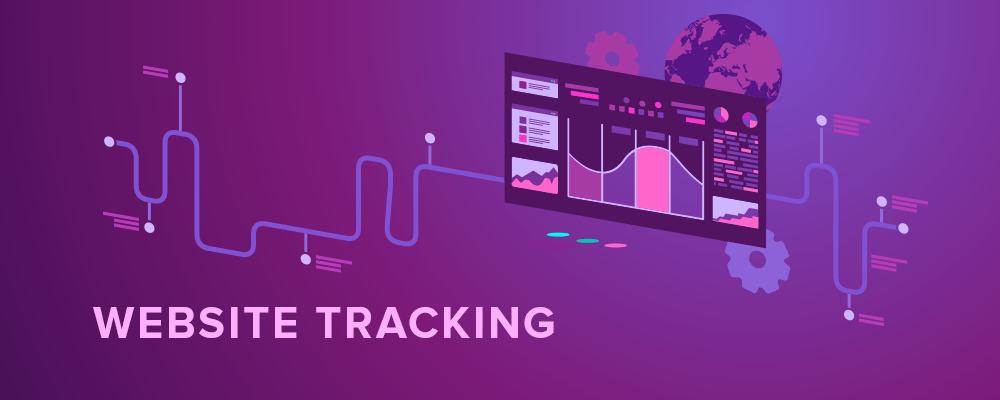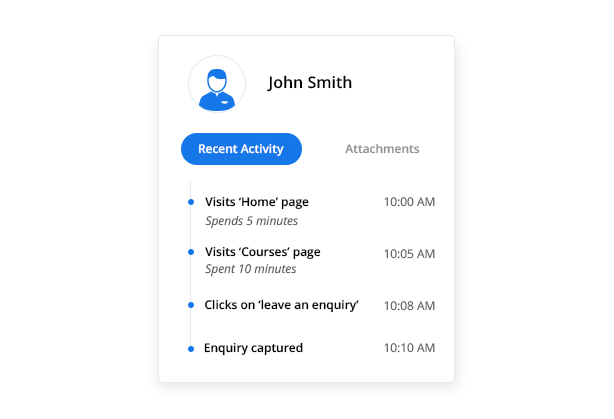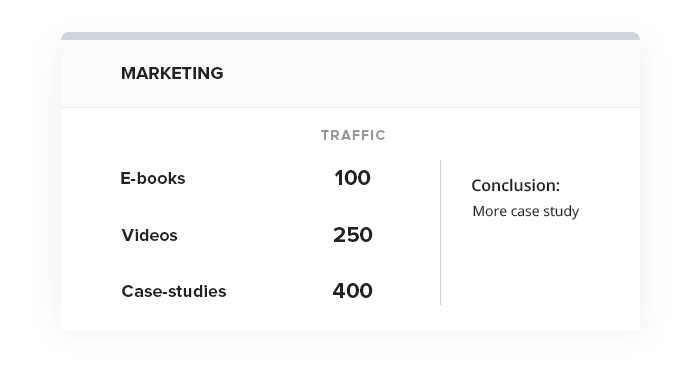Basic website analytics can tell you how many users are visiting your website and where they come from, but the benefits tend to end there. As a result, you’re left scratching your head trying to figure out more about your mysterious website visitors:
- Who are they?
- Why did they come to your website?
- What did they do on your website?
- How long were they on your website?
- Where did they go next?
- Did they come back?

Website tracking may be able to deliver the answers that traditional analytics ignore. And, with those answers comes more opportunities to increase your sales.
What Is Website Tracking?
All websites have the ability to collect information about user sessions, but it doesn’t always happen organically. If you want to know more about specific users rather than website activity as a whole, you’ll need a website tracking tool.
Website tracking follows the path of each user on your website to gain more insight into their activity. Tracking helps you discover what pages they visited, what they clicked on, how long they spent on each page, how they found your website and more.
Think of it as a two-way mirror into the user experience: you can see exactly what your visitors are doing without relying on guesses or confusion that most analytics tools create. This not helps you build a profile on your lead’s interests.
What Can Website Tracking Do?
What website tracking does in a technical sense pales in comparison to what it can do in a business sense. The benefits for sales and marketing teams alike are many, giving you direct insight on what customers respond to so you can better tailor your content to their needs and expectations.
Follows the Journey of Every Lead
Website tracking is one of the most clear-cut ways to find out what the customer journey looks like from the perspective of the customer. By tracking each user’s activity on your website, you can discover what content they’ve already seen, what content attracted them to remain on your website or sign up for an offer, the products they viewed, and how far they are in the buying cycle, among other details.

Knowing this information, sales reps are better able to connect with leads and continue moving them through your funnel (more on this in the next section).
Unifies Sales and Marketing Efforts
Marketing and sales teams alike can benefit from the data collected by website tracking.
For marketers, it’s a direct look at how the content they create is performing. They can use data-driven facts rather than guesswork to switch out content and images, upgrade their CTAs, and revamp their offers.

It’s also a unified channel to see where leads are ultimately coming from. In marketing, the initial source is just as important as how the purchase was made. For example, LeadSquared’s website tracking product can tell you if a lead came from social media but actually purchased via a Google AdWords campaign.
For sales reps, website tracking can tell you where a prospect is in the sales funnel by examining the customer journey. This is great news considering that the majority of the buying cycle takes place online – before a prospect ever reaches out to a salesperson!
When a salesperson can see what research the prospective buyer has already done, he or she is better positioned to sell to them based on their existing experience.
Automates Tasks
Marketing and sales automation is becoming more of a reality for companies of all sizes and industries. According to Salesforce, over two-thirds of leading marketers are already using some level of automation, and the field is poised to expand even further. Salesforce studies predict that an additional 21% of marketing leaders will adopt some form of automation over the next two years.
Website tracking is an important piece of the automation puzzle, especially as it pertains to lead generation. By implementing tracking, you can create automated tasks like sending emails based on website behavior, creating custom offers, scheduling phone calls for sales teams, and other historically manual tasks.
Optimizes Conversions
Not every website visitor will turn into a paying customer. But what makes some users buyers while others leave?
Website tracking is your best bet to answer this age-old question. By knowing where your drop-off points are, you can better determine why some visitors are more inclined to leave without converting.
How to Put Website Tracking to Work
Website tracking can be a powerful secret weapon in helping you understand user behavior and how to tailor your experience to their needs. General analytics tools like Google Analytics aren’t enough to use your data to its potential, which means you’ll be better off investing in a website tracking tool designed to improve how you market and sell your products.
LeadSquared’s website tracking product offers a comprehensive suite of features that help your team lead with insight. Take it for a spin in our free 15-day trial to see what you can learn about your customers – and how to tap into that data for your own benefit.








